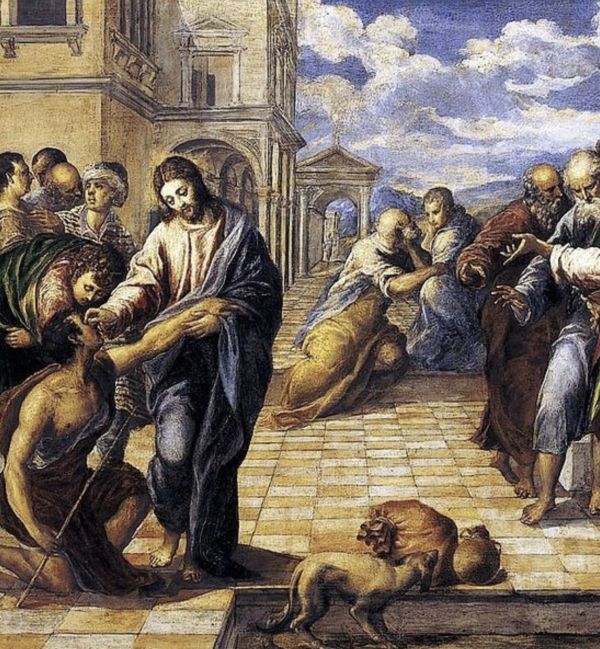Francis of Assisi was always very sensitive to the theme of faith giving light to inner blindness.
He himself suffered greatly from his eye disease, and it is not for nothing that the Canticle of the Creatures is a masterpiece of that time of suffering.
"Often, rising from prayer, his eyes seemed to be full of blood, so reddened were they by dint of weeping" (FF 1413).
He always had such a predilection for those who were blind and yearned to see again.
There are episodes from the Sources that recount this reality.
"A woman [...] inhabitant of Narni, stricken with blindness, regained the gift of sight through the sign of the cross that Blessed Francis traced over her eyes (FF 438).
Moreover, "the son of a nobleman, born blind, received, through the merits of St. Francis, the much-desired sight and, in memory of the event, received the name Illuminato.
Grateful for the benefit received, at the proper age he entered the Order of St. Francis and made great progress in the light of Grace and virtue, showing that he was a son of true light" (FF 1304).
The Poor Assisian, in the footsteps of Christ, healed many who believed or nurtured greater faith in God because they were healed in heart.
In the Sources we read:
"In the convent of the Friars Minor in Naples there was a friar, named Robert, who had been blind for many years.
At a certain point a fleshy growth formed over his eyes, which prevented him from moving and lifting his eyelids.
One day many foreign friars gathered in that convent, heading to different parts of the world.
Well, our blessed father Francis, a mirror of holy obedience, as if to incite them to the journey with the novelty of a miracle, wished to heal that friar, in their presence, in the following way.
This friar Robert was deathly ill, so much so that by this time his soul had been commended to him; when behold, the blessed Father appeared to him, in company with three friars, models of all holiness: saint Anthony, friar Augustine, and friar James of Assisi, who now, after death, accompanied him thoughtfully, just as they had followed him perfectly during life.
Taking a knife, St. Francis cut away his superfluous flesh, restoring his sight and snatching him from the jaws of death; then he said to him:
"O son Robert, the grace I have given you is a sign for the brothers who set out for distant peoples: it is a sign that I will precede and guide them on their journey. Let them depart with joy and fulfill with a ready mind the obedience they have received!" (FF 1299).
The Canticle written by St. Francis [Canticle of Brother Sun] is a hymn to life and light at the time when he had lost his sight and was healed in his heart.
Francis, after his conversion, came to see again and became a light for all, a beacon in the night of time.
Christ restored sight through him.
"And Jesus said to him: Go, your faith has saved you" (Mark 10:52).
30th Sunday in O.T. B (Mk 10:46-52)












